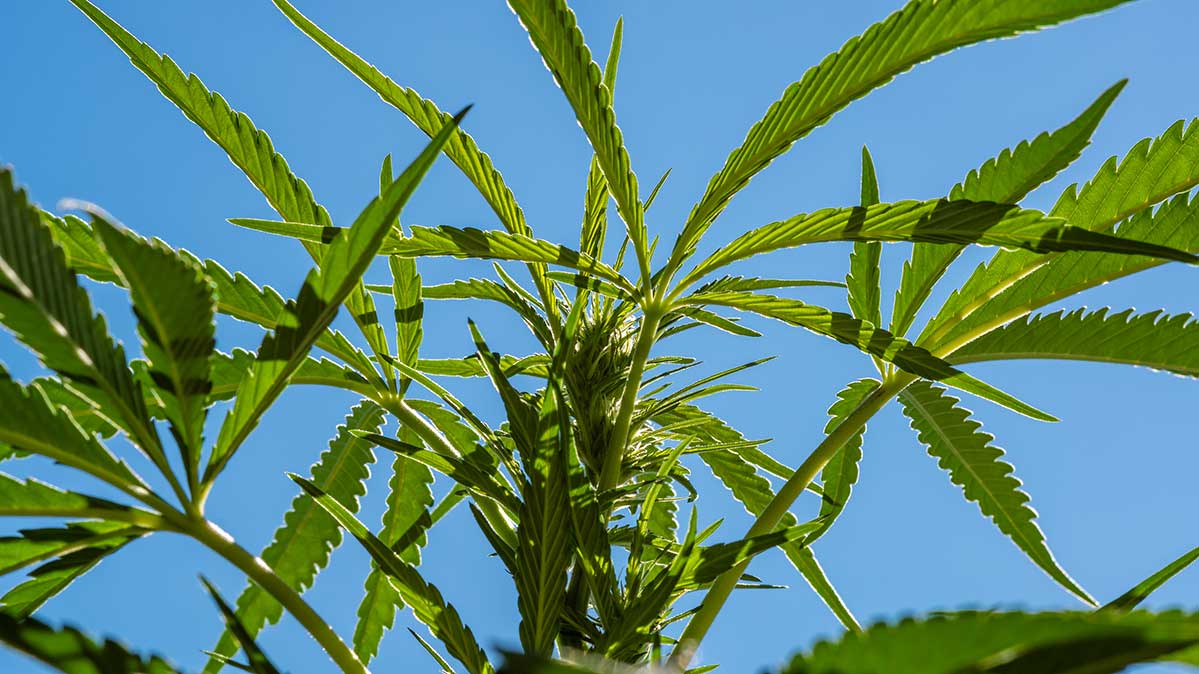Congress Approves a Bill to Make CBD Legal at Federal Level
Passage of the 2018 Farm Bill clarifies CBD legal status and lets U.S. farmers grow hemp, but some regulatory questions remain
By Lisa L. Gill
December 12, 2018

A sweeping agriculture bill passed by Congress on Wednesday gives the legislative nod needed to make CBD (cannabidiol), one of hemp’s byproducts, legal at the federal level.
That’s good news for consumers who use or want to try various products infused with CBD, which is nonpsychoactive. And it could soon mean more products for consumers on retail store shelves. The bill also allows farmers to legally grow industrial hemp.
Although consumers have been able to purchase CBD products in the 47 states where CBD sales are permitted, the federal legality question has loomed. (See map below.)
That’s because the Drug Enforcement Agency previously classified CBD as a “Schedule I” controlled substance, meaning the federal government contended that it had no known medical value and risked being highly addictive, similar to drugs such as LSD and heroin.
MORE ON CANNABIS
What Is CBD? What to Know Now About This Cannabis Product
How to Shop for CBD
How to Use CBD: Should You Inhale, Spray, Apply, or Eat It?
6 Tips for Safe CBD Use
Should You Try CBD for Your Pet?
But times have changed, and many in the medical community and in the public say that CBD can be potentially helpful for certain health conditions. Most notably, it has clearly proved to help reduce the number of seizures in people who suffer from two devastating forms of epilepsy. The FDA approved the CBD-based drug Epidiolex earlier this year.
Thousands of CBD products can be found online and in retail stores. They include oils and tinctures, food and candy, even coffee and other drinks.
A growing body of preliminary research suggests that CBD has properties that improve health. For example, it appears to act as an anti-inflammatory, which in theory could help with arthritis and some forms of pain. And it has many effects on brain chemistry, which could ease anxiety and depression, among other conditions. Still, some consumers were in limbo, wondering whether the products were legal and whether they were breaking the law when buying them.
The full 2018 Farm Bill is a package of programs estimated to cost $876 billion over 10 years. It touches almost every aspect of farming, food, and food production in the U.S.
The Senate passed the bill on Tuesday. Now it goes to President Donald Trump, who is expected to sign it.
“My Hemp Farming Act as included in the Farm Bill will not only legalize domestic hemp, but it will also allow state departments of agriculture to be responsible for its oversight,” Mitch McConnell, (R-Ky.) said in a statement.
The bill allows each state to decide whether it wants to okay the sale of CBD products from hemp within its borders. And by changing how marijuana is defined in the Controlled Substances Act so that it doesn't include hemp, the bill effectively removes CBD derived from hemp from the DEA’s list of controlled substances. Marijuana and hemp are variations of the Cannabis sativa L. plant.
Legalizing hemp in the U.S. could mean “doubling or tripling domestic cultivation within the next year,” Colleen Keahey, president of the Hemp Industry Association, told CR in an earlier interview.
And by removing CBD hemp from the controlled substances list, companies will be able to legally transport it across state lines, allowing for interstate commerce, says Jonathan Miller, who led the lobbying efforts for hemp legalization as legal counsel of the U.S. Hemp Roundtable, a group of 60 CBD producers.
A greater variety of products on store shelves could be good for people like K. C. Ferrill, 64, of Pendleton, Ind., who says taking CBD has been “life changing,” allowing him to drop the antidepressants that he took for 25 years to quell anxiety and depression.
Ferrill says he was “flabbergasted” when Indiana allowed retailers to sell CBD, and he feels more secure about purchasing it now that it appears the federal government is legalizing it as well.
A Consumer Reports nationally representative survey from last month showed that 15 percent of adult Americans had tried CBD and a majority (83 percent) said it helped, to some degree, the symptoms they were treating.
What Is Hemp?
Industrial hemp is a type of cannabis, defined by the federal government as having THC (tetrahydrocannabinol), the psychoactive compound found in cannabis, of 0.3 percent or less. That amount has not been shown to make a person feel “high.” In fact, some researchers and physicians argue that having even a small amount of THC helps CBD work better in the body because of what’s known as the “entourage effect.” (Read more about how to shop for CBD.)
For comparison, some marijuana products contain amounts of THC that are up to 100 times more potent.
Hemp, one of the oldest known crops cultivated by humans, has a long and twisted history in the U.S., often conflated with marijuana and banned as a crop in 1937. But hemp can produce hundreds if not thousands of consumer goods, including fiber, paper, textiles, rope, and even biofuel.
From Tobacco to Hemp
Today’s bill makes hemp a “commodity” crop for farmers, who will now be able to obtain crop insurance, financing, loans, and other federal and state benefits to help them grow and sell it, says Miller.
That could help farmers like Brent Cornett in London, Ky.
For seven generations, he and his family have farmed at the foot of the Appalachian mountains, growing produce including tomatoes and corn. But the family always relied on tobacco as a major cash crop.
Cigarette smoking has dropped sharply in the U.S. and abroad, and the demand and value for tobacco has taken a nosedive, Cornett says. At the same time, U.S. farmers have suffered recently from the U.S. trade war with China, which imports U.S. agricultural products.
Four years ago, as part of a state agricultural department pilot program, Cornett decided to try industrial hemp as a new crop. So far it’s been successful. He says that even an average yield can earn profits similar to an excellent tobacco crop.
But until the Farm Bill passed, “one of the biggest risks [was] the lack of crop insurance,” Cornett says, which protects against poor and unpredictable weather conditions. All other agricultural commodities—corn, soybeans, and tobacco—have federal crop insurance, he adds.
With the passage of the bill, Cornett says he’ll breath a sigh of relief. “Where we are today is because of income from tobacco,” he says, but “with the outlook on tobacco, I would be worried if we didn't have the prospects of the hemp to replace it with.”
CBD Still Faces FDA Scrutiny
While hemp production may eventually be a boon for U.S. farmers, CBD may still face legal hurdles, even with the passage of the Farm Bill, says Miller, legal counsel for the U.S. Hemp Roundtable
Since 2015, the FDA has cracked down on dozens of companies selling CBD products online for making unsupported health claims. It noted in letters to the companies that CBD can't be sold as a supplement because it was introduced into clinical trials as an investigative new drug. And the FDA recently approved a prescription drug called Epidiolex whose main ingredient is CBD.
When CR asked the FDA how it plans to regulate CBD under the new Farm Bill, agency representatives said they couldn't comment on pending legislation.
While regulators plot their next moves, retailers and manufacturers are gearing up.
Michael DeAngelis, a CVS spokesman, says the drugstore is continuing to monitor how the legislation evolves on federal and state levels before the chain stocks CBD products.
Joseph Dowling, the CEO of CV Sciences, the manufacturer of PlusCBD Oil, says the bill’s passage should make way for more retail sales throughout the U.S. “We believe 2018 Farm Bill legislation, including the provisions pertaining to hemp and hemp-derived products, will provide the legal framework for products like PlusCBD Oil to be placed onto store shelves,” he says.

Want better healthcare?
Help us fight for safer food, drugs, and hospitals.How You Can Help

Lisa L. Gill
As a dorky kid, I spent many a Saturday at the Bloomington, Ind., public library, scouring Consumer Reports back issues for great deals. Now, as a (much) bigger kid, that's still my job! Identifying products and services, especially in healthcare, that are safe, effective, and affordable—and highlighting those that aren't—is my top concern. Got a tip? Follow me on Twitter (@Lisa_L_Gill)
No comments:
Post a Comment